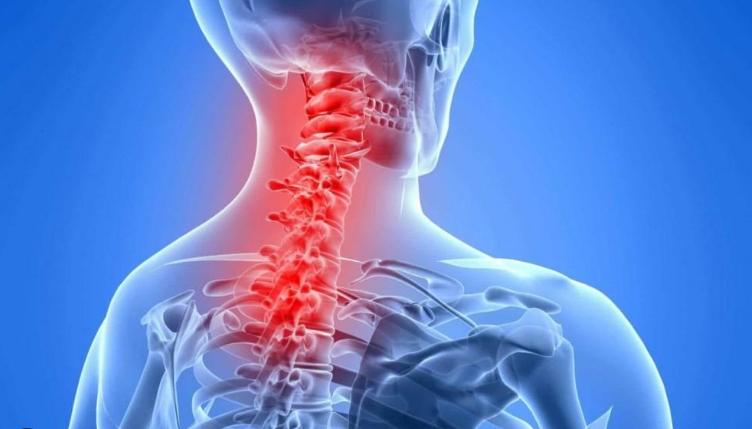
Neck pain or stiffness is usually from poor posture or overuse, or an awkward sleeping position. But sometimes, it can indicate a serious injury like whiplash or an illness, so a doctor’s care may be necessary. Your neck is made up of vertebrae that extend from the skull to the upper torso. Cervical discs absorb shock between the bones.
The bones, ligaments, and muscles of your neck support your head and allow for motion. Any abnormalities, inflammation, or injury can cause neck pain or stiffness. If you have neck pain that continues for more than a week, is severe, or is accompanied by other symptoms, seek medical attention immediately.
Neck pain symptoms
Neck pain symptoms can rangeTrusted Source in severity and duration. Oftentimes, neck pain is acute and lasts for only a couple of days or weeks. Other times, it may become chronic. Your neck pain may be mild and not interfere much with your activities or daily living, or it may be severe and cause disability.
Symptoms of neck pain may include:
Stiff neck.
People with neck pain often describe feeling as though their neck is “stiff” or “stuck.” Neck pain can sometimes cause a decreased range of motion.
Sharp pain.
Neck pain may feel like sharp or “stabbing” pain that is localized to one area.
Pain when moving.
Neck pain is often exacerbated by moving, twisting, or extending your cervical spine, either from side to side or up and down.
Radiating pain or numbness.
Your neck pain may radiate to your head, trunk, shoulder, and arms. If your neck pain involves the compression of a nerve, you may feel numbness, tingling, or weakness in either of your arms or hands. Neck pain that is from a pinched nerve may feel like a burning or sharp pain that starts at the neck and travels down the arm. Talk with a doctor if you experience this symptom.
Headache.
Pain that starts in your neck may also produce a headache called a cervicogenic headache. Neck pain with a headache may also be a symptom of a migraine headache.
Pain when palpated.
Neck pain may increase if your cervical spine is palpated (physically examined).
Causes of neck pain
Neck pain or stiffness can happen for a variety of reasons.
Muscle tension and strain
This is usually from activities and behaviors such as:
Poor Posture
working at a desk for too long without changing position sleeping with your neck in a bad position jerking your neck during exercise
Injury
The neck is particularly vulnerable to injury, especially in falls, car accidents, and sports, where the muscles and ligaments of the neck are forced to move outside of their normal range.
If the neck bones (cervical vertebrae) are fractured, the spinal cord may also be damaged. Neck injury from sudden jerking of the head is commonly called whiplash.
Heart attack
Neck pain can also be a symptom of a heart attack. It often presents with other symptoms of a heart attack, such as:
- shortness of breath
- sweating
- nausea
- vomiting
- arm or jaw pain
If your neck hurts and you have other symptoms of heart attack, call 911 or go to the emergency room immediately.
Meningitis
Meningitis is an inflammation of the thin tissue that surrounds the brain and spinal cord. In people who have meningitis, they may experience:
- stiff neck
- headache
- nausea
- vomiting
- sensitivity to light
- fever
- Meningitis can be fatal and is a medical emergency
If you have the symptoms of meningitis, seek medical help immediately.
Other causes
Other causes of neck pain include the following:
- Rheumatoid arthritis causes pain, swelling of the joints, and bone spurs. When these occur in the neck area, neck pain can result.
- Osteoporosis weakens bones and can lead to small fractures. This condition often happens in hands or knees, but it can also occur in the neck.
- Fibromyalgia is a condition that causes muscle pain throughout the body, especially in the neck and shoulder region.
- As you age, the cervical discs can degenerate. This is known as spondylosis, or osteoarthritis of the neck. This can narrow the space between the vertebrae. It also adds stress to your joints.
- When a disc protrudes, as from a trauma or injury, it may add pressure on the spinal cord or nerve roots. This is called a herniated cervical disc, also known as a ruptured or slipped disc.
- Spinal stenosis occurs when the spinal column narrows and causes pressure on the spinal cord or the nerve roots as it exits the vertebrae. This can be from long-term inflammation caused by arthritis or other conditions.
In rare instances, neck stiffness or pain occurs due to:
- congenital abnormalities
- infections
- abscesses
- tumors
- cancer of the spine
Resources : healthline - Neck Pain: Symptoms, Causes, and How to Treat It https://www.healthline.com/health/neck-pain
Tarikh Input: 18/09/2023 | Kemaskini: 02/10/2023 | aslamiah
PERKONGSIAN MEDIA

























